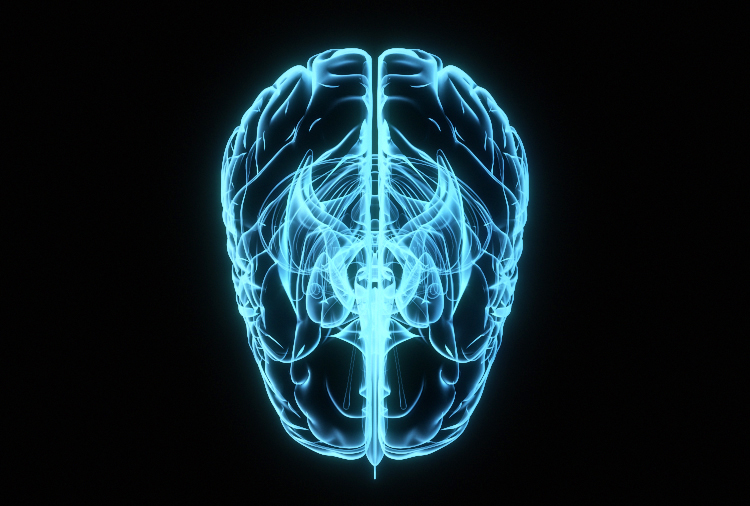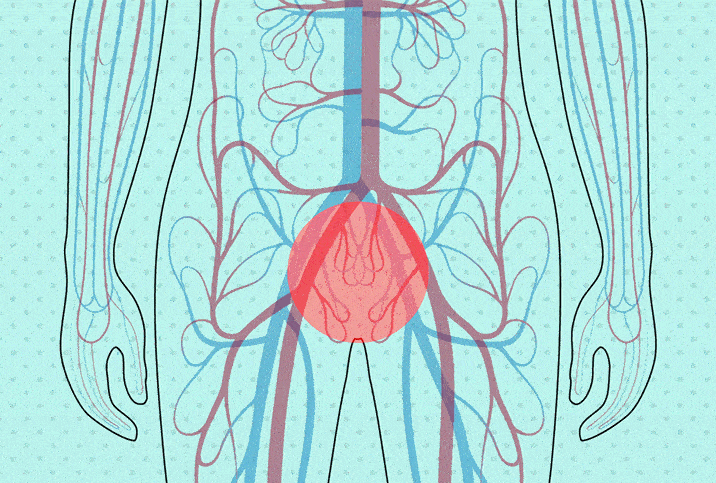These Neurological Disorders Have a Connection to Erectile Dysfunction

If you're a man diagnosed with a neurological disorder, you might have experience talking to your doctor about bodily functions and dysfunctions that are not always easy to discuss, but bringing up an inability to get or keep an erection might still seem intimidating.
It can be difficult to talk about erectile dysfunction (ED).
But as Maria Uloko, M.D., a urologist at UC San Diego Health who specializes in treating sexual dysfunction, tells her patients, ED is not something to be embarrassed about.
"When we talk about sex and sexuality, there's always kind of the stigma of shame," she said, adding that ED can be quite common as people age and/or if they have a condition that affects the nervous system.
Neurological conditions that can contribute to ED
A number of neurological conditions can contribute to impotence.
Multiple sclerosis
Multiple sclerosis (MS) is a progressive, debilitating disease that affects the central nervous system and can ultimately cause permanent nerve damage.
"This nerve damage can then result in erectile dysfunction," Uloko said.
MS has many different manifestations and a variable course, according to Alan Shindel, M.D., MAS, a professor of urology and men's reproductive health at the University of California at San Francisco. He added that MS can cause a disruption of transmissions from the nerves and peripheral nerves, interfering with what triggers the vasodilatory response, which is the opening up of blood vessels and an increase in blood flow that gives rise to erections.
This nerve degeneration and the changes in nerve conduction that occur with MS, centrally and peripherally, can lead to ED.
Spinal cord injury
Shindel and Uloko both said spinal cord injuries or trauma affect the central nervous system and commonly cause ED.
A spinal cord injury can lead to ED in a different way than diabetes, said Rachel Shapiro, M.S., a certified physician assistant who specializes in treating urology patients at UC San Diego Health. Diabetes, which is not a neurological disorder in the proper sense, does affect the nervous system and can result in peripheral neuropathy and microvascular changes that contribute to ED over the long term.
Men who suffer spinal cord injuries might encounter problems with sexual function but may also be able to get erections, Shapiro said. Some men may have diminished sensation or none at all; others may not be able to ejaculate even though they are able to get a reflexive erection.
Parkinson's disease and ALS
Parkinson's is another progressive disease that also affects the central nervous system and can significantly impact dopamine production.
"Dopamine is a neurotransmitter that has a lot to do with sexual drive and libido, so there is a strong central nervous system component to how Parkinson's can be related [to ED]," Shindel said.
Amyotrophic lateral sclerosis, also known as ALS or Lou Gehrig's disease, is a progressive and debilitating condition wherein the neurons that control voluntary movement die over time and result in the gradual loss of movement and bodily functions. It can also cause neurodegeneration of dopaminergic pathways and cause issues related to erectile function, according to Uloko.
Epilepsy
Shindel said epilepsy, while not usually a direct neurological cause of ED, can affect the psychological dimension of sexual function. As with many neurological conditions, the medication used to treat epilepsy might interfere with erections or a man's orgasmic or ejaculatory response.
Epilepsy can cause hormonal disruption. According to Uloko, it can lower testosterone levels and lead to elevated prolactin, which can ultimately decrease the levels of dopamine that must be maintained to achieve orgasm and enjoy optimal sexual health.
In short, damage to the nervous system can impact the vascular function a man requires for an erection.
"[Erectile function] has everything to do with blood flow and circulation and blood being trapped inside the penis," Shindel said. "So it's very much a vascular phenomenon."
Treatments and workarounds
Medication for ED comes with risks, as do most drugs, but Shapiro said treatments that focus on the vascular nature of erectile dysfunction have proved effective.
Doctors usually try to address ED by enhancing vascularity, but Uloko emphasized the importance of a "biopsychosocial model" when working with patients. She defines the biological extent of the disease, documents the patient's detailed health history (duration, type and management of disease, medications used, etc.), and examines underlying systemic issues.
"Erections are a big reflection of overall health," she said, adding that when the body doesn't do what it's expected to do, then psychology can come into play for the patient, and speaking with a sex therapist can be helpful.
Drugs
Outside the scope of therapy, doctors generally aim to reverse what is correctable, optimize overall health to the extent possible, and then prescribe phosphodiesterase type-5 (PDE5) inhibitors, such as sildenafil (Viagra) and tadalafil (Cialis).
"They are vasodilators, so they bring blood flow to the penis," said Shapiro, who added that doctors start with these ED meds because they are inexpensive and accessible. "Now, for somebody who has a neurological condition, sometimes those drugs work very well, but sometimes they don't."
Devices
When drugs don't work, men might try wearable devices. Vacuum erection pumps are basically a cylinder with a vacuum, some of which plug in and some of which are battery-operated. A person can pay for the pump once and then use it repeatedly. While it can be cumbersome, according to Shapiro, many men find it useful.
The device increases blood flow to the penis without the need for intact neurovascular input. Then the man can put a constriction ring at the base of the penis to keep the blood flow in.
Constriction devices are another class of wearables. One example is Eddie by GiddyⓇ, which is designed to treat ED by constricting the veins in the penis, but not the arteries or urethra, to optimize blood flow and help maintain erections.
Suppositories and injections
Intraurethral suppositories, which are inserted into the penis at the tip of the urethra, offer another potentially erection-inducing alternative in a small pill form that dissolves. The advantage to the suppository is it bypasses the neurological input that is needed to become erect.
"Think of it as a high-potency Viagra," Shapiro said.
In lieu of inserting a pill into his penis, a guy can opt for an intracavernosal injection.
"It's essentially an injection of a very strong medication—often two or three medications combined from a compounding pharmacy—directly into the penis," Shapiro said. "So we take a tiny insulin needle, and every time the patient wants to have an erection, they will inject at the base of the penis within an inch of the base on the side."
This practice sounds terrible, but the base of the penis, while sensitive, is not as sensitive as the tip, so some men elect to use the injections to treat ED. The results, which some men like, are relatively predictable and robust, Shapiro said. But the treatment can be a "mixed bag" for spinal cord injury patients, who might get erections using the injection only to see their penis return to a flaccid state too quickly.
Implants
If the doctor and patient deem a surgical remedy is necessary, two types of penile implants are available.
The inflatable kind consists of two cylinders implanted in the penis, along with a small pump that goes next to one of the testicles. A reservoir of fluid is placed into the superficial part of the pelvis, Shapiro explained, and the patient can squeeze a bulb—the pump in the scrotum—that then inflates the cylinders and causes the penis to become erect. When finished, the patient can press a button and it all deflates.
The second type is semi-rigid and requires less manual dexterity to operate. But this kind keeps the penis perpetually erect, Shapiro said. Men can point their penis downward when they aren't engaged in sexual activity.
Shindel said a plethora of experimental approaches and off-label treatments—such as platelet-rich plasma therapy, gene therapy, stem cells and acoustic wave therapy—have been tried, but said most of these modalities are most appropriately used in clinical trial settings with Institutional Review Board-approved supervision.
Shindel stressed that anyone suffering from a neurological condition should be able to talk to their healthcare providers about their concerns regarding sexual function, and should have those concerns taken seriously—or a patient should feel entitled to find another provider.
"Sex is something that's very special and something that's very human. And it's a human right, fundamentally—not sex with whomever you want—but the capacity for sexual expression with consenting partners is a human right, in my opinion, and the World Health Organization agrees on that," Shindel said, invoking the Promotion of Sexual Health: Recommendations for Action, from the WHO and the Pan American Health Organization (PAHO), which recognizes sexual rights as human rights. "So I think it's something that we need to take seriously as healthcare providers."


















